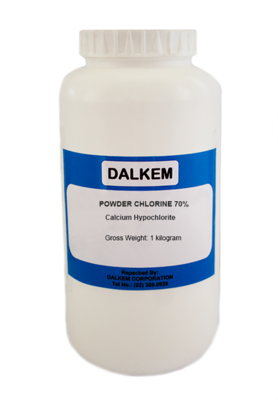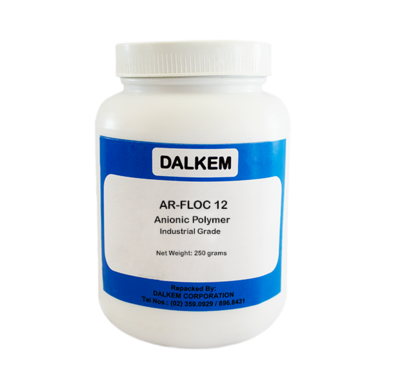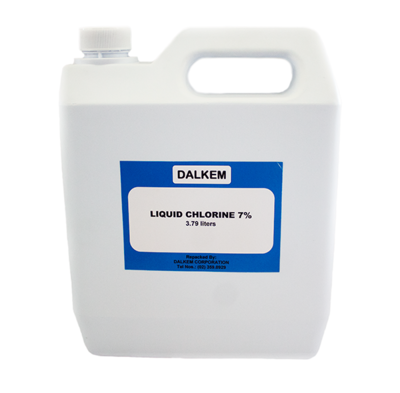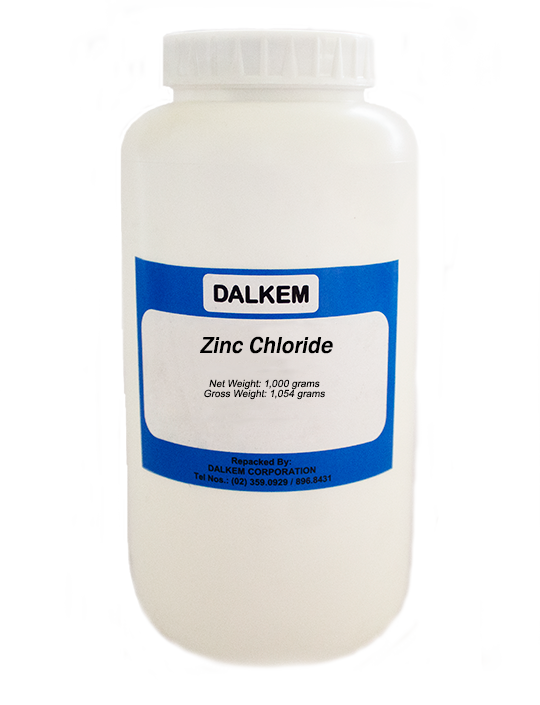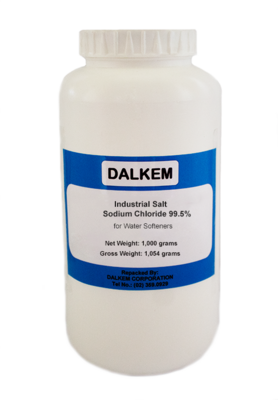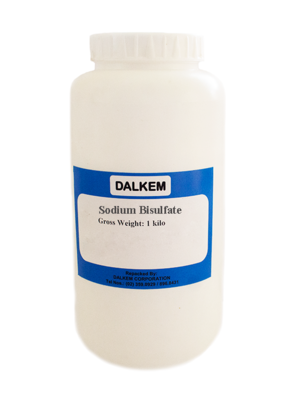Zinc Chloride Technical Grade 500 grams (Net Weight)
Zinc Chloride is a white deliquescent salt that forms acidic solutions in water and in polar organic solvents such as ethanol, acetone and ether. Neutral solutions can be prepared with anhydrous zinc chloride and acetone.
Zinc chloride has a variety of uses including water treatment as an electrolyte in battery manufacture, in zinc plating, rubber and fiber vulcanization, textile finishing and for applications in food canning.
Chemical and Physical Properties
Anhydrous zinc chloride hydrolyzes with moisture to form hydrochloric acid. It also forms complex ions with water, ammonia and some organic solvents. Alkaline materials precipitate zinc hydroxide from zinc chloride solutions.
• Zinc laurate, linoleate or resinate can be formed from zinc chloride solutions and solutions of the corresponding sodium salt.
• Zinc chloride is a Lewis acid and therefore electrophilic in character. Its catalytic activity is milder than that of aluminum chloride in, for example, Friedel-Crafts type reactions. Zinc chloride is particularly effective in catalyzing reactions that eliminate molecules of water, ammonia or mercaptans.
• Zinc chloride solutions gelatinize cellulosic materials and induce crosslinking in such polymer formers as the methylol ureas. • Zinc chloride solution has no USP designation, though the purity of zinc chloride solutions can match anything made from USP-grade dry zinc chloride solution.
Applications
• Galvanizing, Soldering and Tinning Fluxes When heat decomposes moist fluxes based on zinc chloride, hydrochloric acid is formed.
• The acid removes oxides and salts from metal surfaces and provides good metal-tometal bonding. Odor Control Zinc chloride reacts with sulfide to minimize release of H2S gas in waste treatment facilities.
• Oil-Gas Wells High-density solutions of zinc chloride and calcium chloride give good performance in well completion and work-over operations; the solutions also have merit as packer fluids under certain well conditions.
• Zinc chloride has been used in specialty corrosion inhibitors and invert emulsion breakers.
• Vulcanized Fiber Water-leaf paper is gelatinized with a 72 Bé zinc chloride solution is less tacky, drier and less moisture-absorbent than caustic reclaimed rubber.
• The zinc chloride not only dissolves the cellulosic fibers in the scrap, but also catalyzes depolymerization of the elastomer.
• Organic Syntheses Zinc chloride absorbs readily on charcoal or silica for catalyzing acylations and alkylations by Friedel-Crafts synthesis.
• In esterifications and condensation reactions, zinc chloride facilitates the elimination of water or ammonia molecules from the reactants. One example is the Fischer idole synthesis.
For more Inquiries:
Landline: (02)895-5610/ (02) 896-8431
Mobile Number: 09989848721
